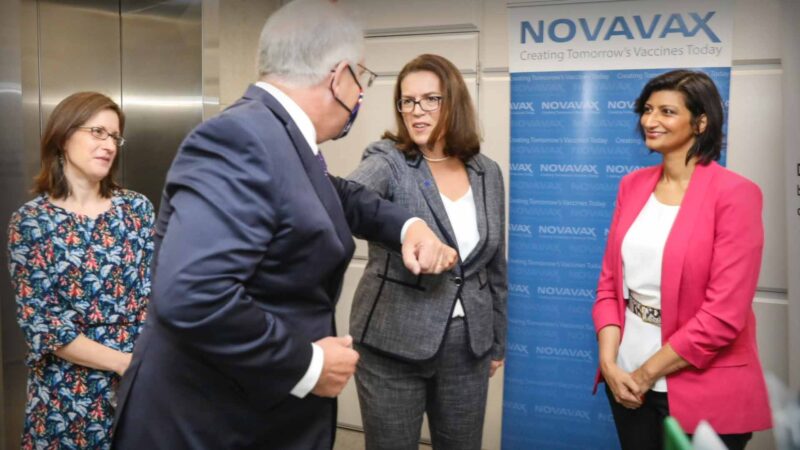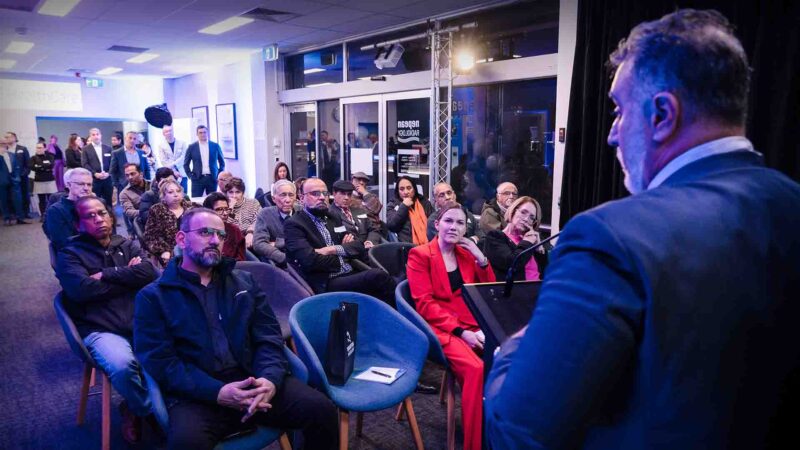A world-first clinical trial conducted at the Royal Adelaide Hospital (RAH) and at hospitals across Australia and New Zealand has identified the best fluid treatment to reduce the risk of patients requiring dialysis after a kidney transplant.
Around one in three people who receive a kidney transplant suffer delayed graft function, which means the transplant doesn’t work immediately and they require dialysis.
To reduce the risk of this occurring, patients are given up to eight litres of IV fluid in the first two days after a kidney transplant.
The BEST Fluids trial compared the use of two intravenous (IV) fluids, Plasma-Lyte 148 and saline, finding Plasma-Lyte 148 reduces the need for dialysis by 25 per cent.
Australian Health Journal spoke with the lead-author of the study, RAH Nephrologist and University of Adelaide researcher, Dr Michael Collins.
Dr Collins provided background by stating, “While both types of fluids have been used during kidney transplantation in recent years, until now there had been little robust evidence to demonstrate which one was the most effective and safest to use.”
During the four-year study, these fluids were trialled in 808 patients with kidney failure, who received a kidney transplant from a deceased organ donor at the RAH and 15 other hospitals in Australia and New Zealand.
Saline is the most common type of IV fluid and contains salt (sodium chloride) and water and has been the standard treatment in kidney transplantation. Plasmalyte 148 is a balanced crystalloid fluid containing a mixture of salts, which more closely resembles what is in human blood.
Researchers at the University of Adelaide and University of Sydney, working with the Australasian Kidney Trials Network team and the ANZDATA Registry at the South Australian Health and Medical Research Institute (SAHMRI), found 30 per cent of participants who received Plasma-Lyte 148 needed dialysis after transplant, compared with 40 per cent of participants who received saline.
Commenting on the findings and potential impact to clinical care, Dr Collins said, “Our finding of a substantial reduction in dialysis with balanced crystalloid compared with saline, without any increase in complications or side effects, provides a strong justification to change clinical practice.”
Using Plasma-Lyte 148 did not result in more complications or side effects compared to saline. At one year after the transplant, both groups had similar levels of kidney function while rates of death, rejection and loss of kidney transplant function were also similar for both groups.
The results of the study are now being used to improve the health of kidney transplant patients in Australia and New Zealand and it is likely that practice will change at transplant units around the world.
Dr Collins added, “Balanced fluids are relatively cheap and widely available, so we hope this practise can now be used for most of the estimated 200,000 kidney transplant operations conducted across the globe each year.”
The BEST Fluids trial was funded by the National Health and Medical Research Council (NHMRC) administered Medical Research Future Fund (MRFF) Australia, the Health Research Council of New Zealand, and the Royal Australasian College of Physicians, with trial fluids supplied by Baxter Australia and New Zealand. The results of the study have been published in The Lancet.
You Might also like
-
Family biz succeeds in vaccine approval & distribution
It’s been 10 years since Jenny and Karl Herz started in business. Over the past 10 years they’ve launched Biointelect and Biocelect businesses to help secure approval and distribution for new medicines into Australia.
In this Australian Health Journal interview, Jenny and Karl talk about the journey the husband and wife team took to get the Novavax COVID-19 vaccine (Nuvaxovid) approved and distributed in Australia. The journey didn’t just include talented and diverse skilled staff but also their children working in both organisations.
-
Rapid trend shift in radiology technology and accessibility
Dr Mansoor Parker obtained his medical degree from the University of Tasmania. He then completed his specialist radiology training at Nepean Hospital, Sydney with subspecialty interests in Interventional Radiology and Pain Management, Musculoskeletal, Cardiac and Abdominal Imaging. Dr Parker is a qualified specialist since 2005 and is a member of the Royal Australian and New Zealand College of Radiologists and the exclusive Australasian Musculoskeletal Imaging Group (AMSIG) as well as the Interventional Radiology Society of Australasia (IRSA).
-
Orthopaedic surgeon driven to understand & manage infection
In tandem with his clinical practice, Associate Professor Tetsworth is deeply engaged in orthopaedic research, with a keen interest in infection management, infection control, limb salvage, bone defect reconstruction, biomarker development for infection, bone growth hormone delivery, and the use of 3D printed models for reconstructing segmental bone defects.



